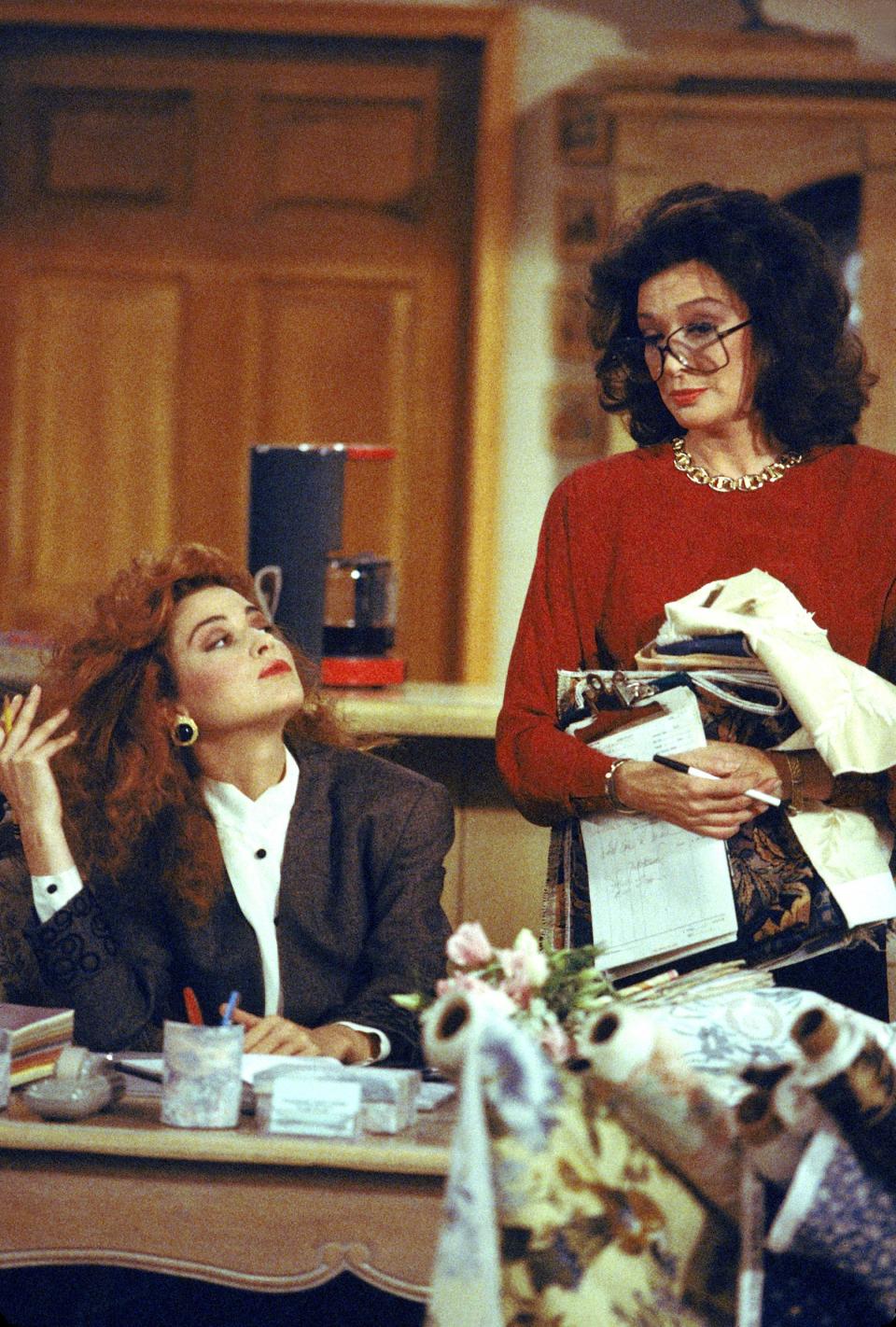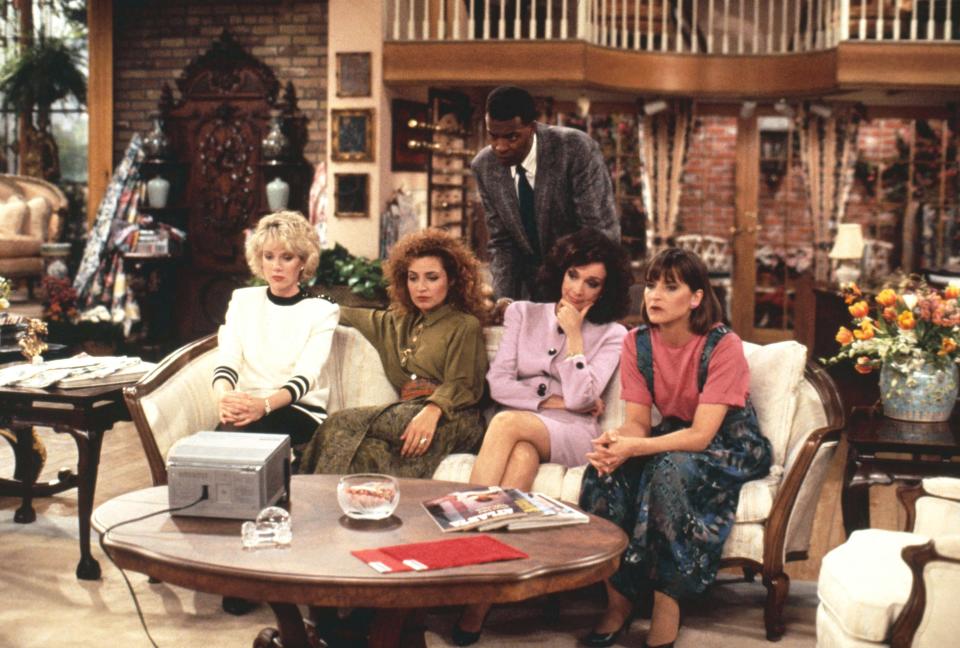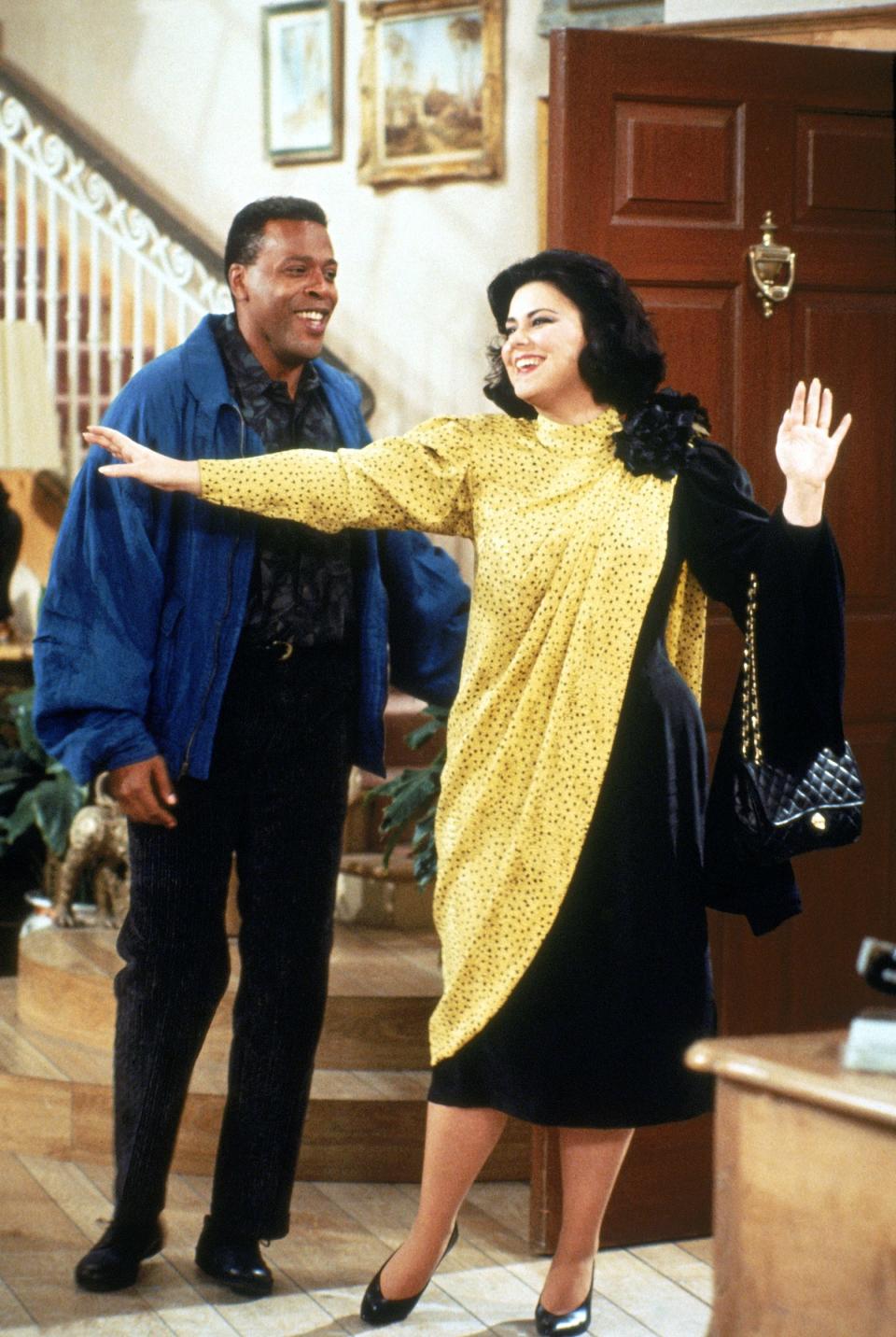Designing Women Was a Series Ahead of Its Time. In 2019 It’s Still Revolutionary
After years of seeing even the most mediocre of series get featured on streaming platforms—or worse, a total reboot—it’s only fair one of the best TV shows in history is finally getting the same treatment. I'm talking, of course, about the return of Designing Women, which begins on Hulu today.
Nearly every Gen X woman I know has been waiting patiently for the moment when we can once again watch the CBS series, which ran from 1986 until 1993 and followed four Southern belles at an interior designing firm. Emphasis on that last part: Their careers were at the center—not their relationships with men and children. Even now, in 20-freaking-19, this feels like a revolutionary concept.
But as happy as I am for established fans like me, I'm even more excited for younger generations of women, gay men, wokeish straight guys, and a politically polarized nation to be reintroduced to one of the strongest and most progressive female TV characters of all time: Julia “The Terminator” Sugarbaker, a whip-smart icon whose takedowns are the stuff of legend.

DESIGNING WOMEN, Annie Potts, Dixie Carter, 1986-1993
Another important reason to celebrate Designing Women's return: It’s a step toward justice for creator Linda Bloodworth Thomason. In 2018 she wrote a scathing op-ed for the Hollywood Reporter about Les Moonves that broke down how hard the disgraced CBS chairman and CEO worked to keep feminist programming like hers off TV. "People asked me for years, 'Where have you been? What happened to you?'" she wrote. "Les Moonves happened to me."
So while this resurgence of Designing Women is a nostalgic treat, it's also happening at a critical moment in American history. One when the political divide between left and right has put our country slapdab in the middle of a cultural crisis that seems to have no solution. As a progressive Southern woman with relatives who voted for Donald Trump as well as a mother like Julia Sugarbaker, only nicer (I call her The Smiling Bulldozer instead of The Terminator), I know all too well about this divide. And I think this show has the power to inspire the liberal coastal “elites” just as much as those in the red states.

DESIGNING WOMEN, seated from left: Julia Duffy, Annie Potts, Dixie Carter, Jan Hooks, Meshach
I know firsthand how folks on the left buy into the red states myth—in short, the assumption that everyone in "flyover" states is supportive of Trump and everything he stands for. The truth is, though, there are just as many who are like the characters on Designing Women, from the badass women running the firm to their progressive boyfriends. People who are proud of their Southern culture without denying its atrocities. People who are devoted to the church without wanting to deny a woman's right to choose what to do with her body. And people who are dedicated to defending the most vulnerable, particularly LGBTQ+ people, women, and people of color.
These Southern belles of Sugarbaker and Associates are not only examples of the kind of Southern women I was raised by, they were far ahead of their time. Hell, they’re ahead of our time, tackling topics few shows know how to handle even today—everything from domestic violence to unhealthy beauty standards to porn. In one episode, Julia Sugarbaker tells off a doctor for gaslighting his female patients, and therefore putting their lives at risk. Before Serena Williams’s near-death experience, we weren’t seriously questioning how some doctors' inherent biases put women’s lives, especially those of black women, at risk. In another episode, Julia takes down a man for invading women’s personal space and time because he can’t fathom why they'd want to be alone. One of her most famous speeches was when she schooled her boyfriend and his buddies for blaming women for the world’s problems when men are the ones who built and reign over this world they complain about. From AIDS and homophobia to slut-shaming and condoms in school, Designing Women covered it all. They even took on the NRA decades before anyone was holding the organization accountable for a gun epidemic that’s way worse now than back then. (For more examples, I recommend checking out this podcast episode of A Special Presentation.)

DESIGNING WOMEN, Meshach Taylor, Delta Burke, 1986-1993
On the occasion Designing Women did focus on romantic relationships, the series thought way further outside of the heteronormative box than what I see on most shows today. In Julia we had a career woman who didn’t have children or a husband but was deeply in love with a man who adored her for her mind and courage. Despite being together for most of the show’s run, Julia and Reese never got married or lived together because they…didn’t need to. As a single woman of 41, I’m not sure I could live with a man at this point. But has there been a show since where a couple is healthy, supportive, madly in love, and faithful yet refuses to marry, live together, or have kids? I can’t think of any.
At its core, Designing Women is about women taking care of themselves and each other. Not one character on this show needed a man, though they all dated and loved them. As Virginia Woolf and feminists for decades have been saying, the key to our freedom is money. This show gives women like myself an alternative to marriage and kids while never poo-pooing women who take the traditional route. In a time when women’s rights are on the chopping block, I think we're in dire need of a show that focuses on our careers, our female friendships, and the power we wield when women support instead of compete with each other. For me, this message being carried by Southern women is the mint leaf on this julep we all need to sip.
Melanie Hamlett is a comedian, writer, and storyteller based in Europe.
Originally Appeared on Glamour

